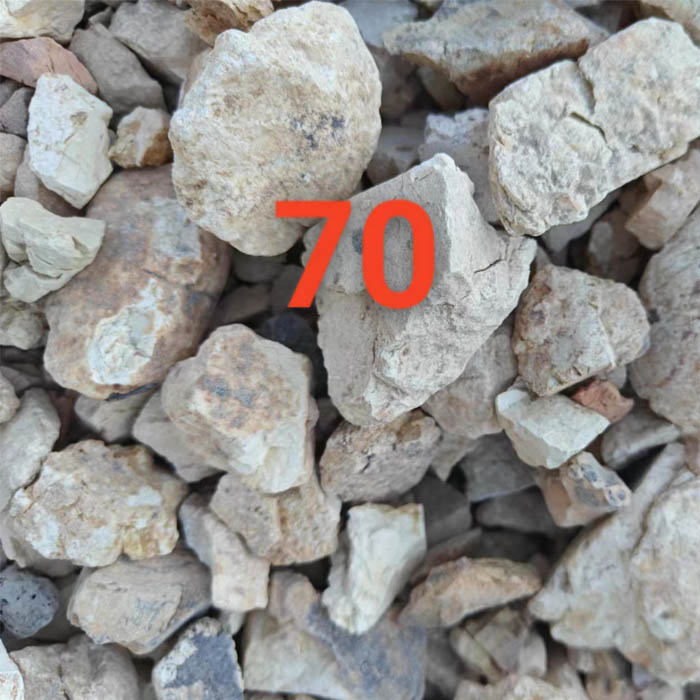Dec . 10, 2024 00:35 Back to list
Supplier of High-Quality Neutral Refractory Materials for Various Industrial Applications
Understanding Neutral Refractory Materials and Their Suppliers
Refractory materials are essential in various industrial applications, particularly in high-temperature processes. They are designed to withstand extreme heat and are commonly used in furnaces, kilns, reactors, and other systems where high thermal resistance is required. Among the different types of refractory materials, neutral refractory materials hold a unique position due to their ability to adapt to various environments without undergoing significant chemical reactions. This article delves into the characteristics, applications, and the role of suppliers in providing quality neutral refractory materials.
What Are Neutral Refractory Materials?
Neutral refractory materials are characterized by their resistance to both acidic and basic slags. They maintain their integrity and performance across a range of temperatures and chemical environments, making them highly versatile. The most common types of neutral refractories include alumina (Al2O3) and chromite (Cr2O3) refractories. Alumina refractories, often coming in various grades, can endure temperatures above 1700°C, while chromite refractories are renowned for their excellent resistance to corrosion and abrasion.
The term neutral indicates that these materials do not react with acidic or basic substances, thus providing an essential barrier in environments where other types of refractories might degrade. This makes them particularly important in metallurgical processes and other high-temperature applications.
Applications of Neutral Refractory Materials
Neutral refractory materials are used predominantly in industries such as metallurgy, ceramics, and glass production. In metallurgy, these materials are essential for lining furnaces and kilns that process ferrous and non-ferrous metals. For instance, alumina refractories are widely employed in electric arc furnaces and ladles used in steelmaking due to their high melting point and resistance to thermal shock.
Additionally, they are also crucial in the production of glass and ceramics, where they help maintain the stability of the process at high temperatures
. In glass manufacturing, neutral refractories provide a crucial lining that withstands the corrosive glass melt, ensuring consistent quality and prolonged equipment life.The Role of Suppliers in the Refractory Market
neutral refractory material supplier

The selection of a reliable supplier for neutral refractory materials is vital for ensuring quality and performance in industrial applications. Refractory suppliers play a critical role in sourcing, manufacturing, and distributing high-quality materials that meet industry standards. When choosing a supplier, several factors should be considered
1. Quality Assurance Suppliers should provide materials that comply with industry standards and possess certifications. This includes testing for thermal resistance, chemical composition, and mechanical properties to ensure that the materials can withstand the operational conditions.
2. Technical Support A reputable supplier should offer technical expertise and support to help manufacturers select the right materials for their specific applications. This includes advising on installation methods, maintenance procedures, and best practices to enhance the longevity of refractory linings.
3. Customization Capabilities Different applications may require specific formulations or adaptations of neutral refractory materials. Suppliers that can customize materials according to client specifications can provide a significant advantage in achieving optimal performance.
4. Sustainability As industries increasingly focus on sustainability, suppliers that prioritize eco-friendly practices in sourcing and production can appeal to modern manufacturers seeking to reduce their carbon footprint. This includes using recycled materials and sustainable manufacturing processes.
5. Supply Chain Reliability Given the high demand for neutral refractory materials, suppliers must maintain a reliable supply chain to ensure timely delivery and availability of products. This is crucial for preventing production downtime and maintaining operational efficiency.
Conclusion
In summary, neutral refractory materials play a vital role in various high-temperature industrial processes. Their unique properties allow them to withstand harsh environments, thereby enhancing operational efficiency and extending equipment life. Selecting the right supplier is paramount to ensuring that manufacturers receive quality materials that meet their specific needs. By focusing on quality assurance, technical support, customization capabilities, sustainability, and supply chain reliability, suppliers can significantly contribute to the success of industries relying on refractory materials. The bedding of a strong partnership between manufacturers and suppliers will pave the way for advancements in refractory technology and improved industrial processes.
-
Fe-C Composite Pellets for BOF: Enhance Steelmaking Efficiency
NewsAug.07,2025
-
Eco-Friendly Granule Covering Agent | Dust & Caking Control
NewsAug.06,2025
-
Fe-C Composite Pellets for BOF: High-Efficiency & Cost-Saving
NewsAug.05,2025
-
Premium Tundish Covering Agents Exporters | High Purity
NewsAug.04,2025
-
Fe-C Composite Pellets for BOF | Efficient & Economical
NewsAug.03,2025
-
Top Tundish Covering Agent Exporters | Premium Quality Solutions
NewsAug.02,2025
